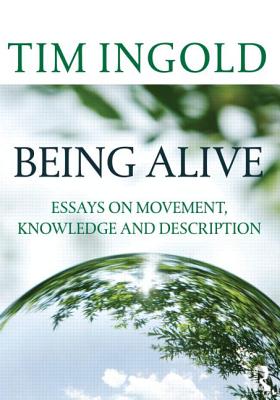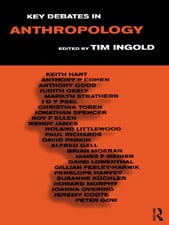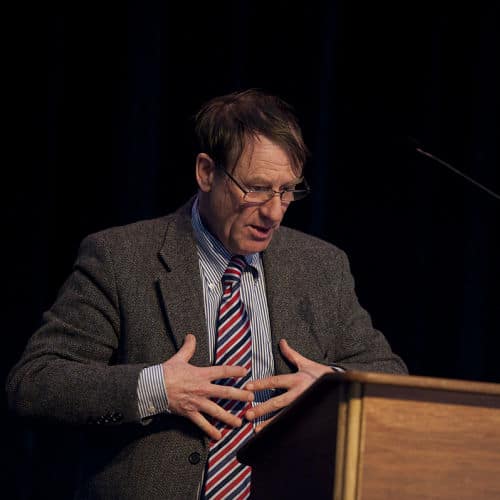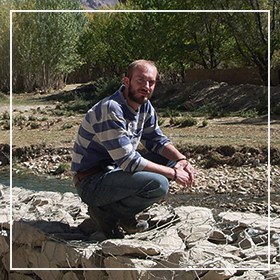Tell me in what journal you publish and I will tell you who you are!
As social and human scientists we are caught in the midst of conflicting forces. On the one hand we (try to) “fight” against structural/cultural mechanisms of marginalization and the reification of social hierarchies; on the other hand the academic world itself is an extremely hierarchical system, with its global centres and peripheries. There is today increasing awareness of the necessity of “going public,” yet at the same time the pressure to publish on traditional journals seems to prevail. Indeed, at the scale of the academic evaluation system, the journal in which a scholar publishes seems to be more important than the article itself. While this reflects an ongoing process of standardization of the criteria used to evaluate scientific work, in line with competitive/marketized/English-speaking canons, it also – at a different level – poses a series of questions regarding the destiny of anthropology as a human science. Numbers, copyrights, indexing, impact factor and contracts dominate an intellectual world that should be instead ruled by creativity, doubts, curiosity – and ultimately, the attempt to explore the human condition.
Since its creation, Tim Ingold, Chair of Social Anthropology at the University of Aberdeen, has been a great source of inspiration for Allegra (see previous posts: here and here). It is my great pleasure to discuss with him about the future of academic publishing.
 Antonio: My feeling is that it is getting more and more difficult to find an article published in a journal that provides us with a sense of “discovery,” surprise or revelation. As a new generation of scholars, we are in some sense frustrated by a divided self: while many of us lean towards a diversified approach to scientific production (from blogs to visual performances, from “inconclusive intellectual trips” to long and convoluted monographs), it seems as though a 8000 words standard-article in an indexed flag-journal written in English is perceived as significantly more important than other “stuff.” Stated in other terms: there is a sort of hierarchy of form that prevails over “creative diversity.” I would like to split this point into three questions for you: Do you think there is a real risk that we may end up with a wholly standardized and uniform academic production? How can a diversified creativity – I use this expression because nowadays creativity seems to be prerogative of the virtual realm of Internet and technology – find a space for itself in the current academic context? Are the reflections of the social and human sciences compatible with quantitative standards such as impact factor, indexing and so forth?
Antonio: My feeling is that it is getting more and more difficult to find an article published in a journal that provides us with a sense of “discovery,” surprise or revelation. As a new generation of scholars, we are in some sense frustrated by a divided self: while many of us lean towards a diversified approach to scientific production (from blogs to visual performances, from “inconclusive intellectual trips” to long and convoluted monographs), it seems as though a 8000 words standard-article in an indexed flag-journal written in English is perceived as significantly more important than other “stuff.” Stated in other terms: there is a sort of hierarchy of form that prevails over “creative diversity.” I would like to split this point into three questions for you: Do you think there is a real risk that we may end up with a wholly standardized and uniform academic production? How can a diversified creativity – I use this expression because nowadays creativity seems to be prerogative of the virtual realm of Internet and technology – find a space for itself in the current academic context? Are the reflections of the social and human sciences compatible with quantitative standards such as impact factor, indexing and so forth?
Tim: I am very concerned, as you are, about the pressures towards standardization and uniformity that are currently being brought to bear on publication in anthropology, as in other disciplines in the humanities and social sciences. There are many reasons for this, including the ever-increasing demands of research assessment, the inherently conservative tendencies of peer review, and the commercial environment of book and journal production. Perhaps, too, there have been pressures to conform to prevailing publishing protocols in the natural sciences, which continue to assume that in its formulation, methods and results, “research” is independent of the way it is written up, and which leave no room for the voice, personal experience and wisdom of the author.
At any rate, I do believe that much academic writing has become soulless, devoid of passion and feeling, and that this is very sad.
 Worse still, many colleagues feel bullied by the pressures of research assessment and peer review into adopting such sterile forms of writing, for fear that their work will not otherwise be accepted. This pressure has been compounded by the tyranny of ever-lengthening bibliographies. Our writings are literally drowning in footnoted or text references, the function of which is neither to acknowledge sources nor to inform readers but only to establish authorial credentials in a competitive environment of ubiquitous assessment.
Worse still, many colleagues feel bullied by the pressures of research assessment and peer review into adopting such sterile forms of writing, for fear that their work will not otherwise be accepted. This pressure has been compounded by the tyranny of ever-lengthening bibliographies. Our writings are literally drowning in footnoted or text references, the function of which is neither to acknowledge sources nor to inform readers but only to establish authorial credentials in a competitive environment of ubiquitous assessment.
I agree with you, too, that in seeking alternatives to “standard” genres of academic production, we have too easy and ready resort to digital media. For these, too, impose their own forms of standardization and homogenization. We are still subjected to the tyranny of the keyboard and the screen, which cramp our movements and reinforce the assumption that all knowledge is arrived at by way of projection. That’s why I encourage my students to write by hand, and why I have always refused, as a matter of principle, ever to use Power-Point.
As for impact and indexing,the whole point of research in the humanities and the social sciences is that it can transform lives. That is where its impact lies. But transformation is, by definition, qualitative.
The quantitative measurement of impact is thus absurd, not to say pernicious. We all want our work to have an impact, and we value the impact it has. It is not the idea of impact that we object to, but the idea that nothing is reliably true that cannot be quantified.
Would you care to rank the impact of Beethoven’s nine symphonies?
Journal rankings based on impact factors are equally pernicious, and again their source seems to lie in the natural sciences where they have done much harm, particularly in encouraging authors to write for prestige journals that do not cater for the readers who would derive most benefit, or do not publish in their language.
All is not doom and gloom however. We will not “finish up” with standardized and uniform models of academic production because we will never finish up, period. Life goes on, and there is already plenty of experimentation afoot, evidenced especially in anthropological collaborations with art, music, experimental theatre, and so on. The alternatives may not be well funded, and green shots may sprout in other institutional or non-institutional contexts than our current, increasingly corporatized universities. But sprout they will.
Antonio: What is your opinion on “open access”?
Tim: On the face of it, open access looks like an admirable principle to which we would all want to subscribe. But the appearance is misleading, and the current call for open access is in fact playing directly into the hands of government, large corporations and predatory publishing houses, all of which must be taking much delight in our academic gullibility. For anthropology, to endorse open access unequivocally would be an own goal. Here’s why. Whatever regime is in place, specialist academic publishing is an extremely costly business. The question is whether these costs are borne up front by the producers of research, or by its consumers (readers and subscribers). Open access would shift the burden from the latter to the former. With rare exceptions (for example where scholars might be independently wealthy), these costs are way beyond what any individual researcher could afford. For externally funded research projects, they might be borne by the funding body (e.g., a research council). For academics with permanent positions, they might be borne by their universities. However, universities with limited resources would then have to decide what work of their academics gets published and what does not. In effect, managers and bureaucrats would find themselves in charge of decisions currently taken by editors. As for all the scholars who are not lucky enough to hold tenured positions, who may be in between jobs or have no jobs at all, their work would have absolutely no chance of being published, as they would have no means to pay. Not only that, but the scholarly societies would find their subscription income cut out from under them, and would probably be unable to continue. Yet these societies have come to play a more and more crucial role as protectors of disciplinary integrity and as a last line of defence against corporate interests and government interference.
 Antonio: In 1996 you opened Key Debates in Anthropology with the following statement:
Antonio: In 1996 you opened Key Debates in Anthropology with the following statement:
“In any academic discipline, the intensity of debate concerning its theoretical and intellectual foundations is a good measure of its current vitality. Ten years ago, I had the feeling that if the pulse of my own discipline, of social anthropology, had been measured by this criterion, it would have been found to be virtually moribund. I had no idea, at the time, whether my feeling was widely shared, or whether it was a symptom of a purely personal frustration” (p. IX).
What is your feeling today?
Tim: Things are very different now from how they were in the mid-1980s. Then, anthropology, at least in the United Kingdom, had indeed hit a low point, partly following a decade of financial cutbacks that had excluded a whole generation of younger scholars from stable academic employment. Things are much livelier now. Indeed I think there is a huge sense of excitement. This is not uniformly distributed, however, and the most exciting work is not necessarily going on in the places that we might traditionally think of as principal centres for anthropological research. Moreover there is still much to be done in bringing anthropology to the prominence it deserves.
First, we need to be much clearer about the purpose and mission of anthropology, and we need to articulate these in a way that “outside audiences” will understand.
This, in my view, entails being more explicit about the difference between anthropology and ethnography. It also means we should spend less time just talking to ourselves. Anthropology is still notably absent from the big public debates surrounding the past, present and future of humanity, the sustainability of life and the environment, and so on. Our absence allows others (psychologists and economists, for example) to peddle their often naïve, outrageous and populist arguments unchallenged. Thus while the internal debate about anthropology’s theoretical and intellectual foundations has indeed been revitalized, we now need to take the debate “out of doors,” and to engage with much wider interdisciplinary and lay audiences. That’s our task for the next decades.






Tim is wrong about the financial implications of a move towards Open Access. There are plenty of anthropological journals, not least http://www.haujournal.org/ and the one I run, the Journal of Political Ecology (http://jpe.library.arizona.edu) that do not charge authors or readers. What we need is greater recognition, greater input from senior anthropologists for editing, reviewing and writing in these journals, and greater support for junior or tenuously employed scholars to write in such journals (rather than the pricey and status-ridden mainstream). Costs in our case are negligible, not large as he suggests; they really boil down to time and voluntary labour. If the discipline took publishing into its own hands in this way, it would be far better off and far more widely disseminated. We also offer more freedom in formats (outside the 8,000 word box) and language.
As for scholarly societies deriving income from a journal; we are linked ot PESO of the SfAA in the USA, and we ahve not been asked to generate any revenue, nor have we. Simon Batterbury, coeditor, J of Political Ecology.
This is so encouraging to find this issue to get attention, and then is critically engaged by someone like Tim Ingold. As a Southern academic, I could easily be provoked to raise the ‘linguistic’ capability issues, which themselves are significant, on a ‘global’ [English dominated] level. But the fact that the English speaking/writing academic community is not on a level playing field either is even more annoying for me to look at. The ways the universities in the North are hiring their professors [publication to even capacity of fund raising contact-making] are crucial in subverting, if at all, the entire interface. But with a general comprehension of the scenario, some of the high profile professors [without further complication of getting hired] from ‘English’ background or with ‘English’ skill and a statue of already-proved ‘publication’ should come forward to initiate a ‘pop-writing’ wave. I think, the rejection of the publication industry [so of academic industry] from the ‘proper’ people can actually lead the alternation of this situation. I owe to Prof. Ingold enormously for finding him addressing to something I, a very local [insignificant too] anthropologist, have long been questioning with some sarcastic kind of defiance.
Re Tim’s comment: “I agree with you, too, that in seeking alternatives to “standard” genres of academic production, we have too easy and ready resort to digital media. For these, too, impose their own forms of standardization and homogenization”.
Thanks for this conversation Tim and Antonio
I think by ‘digital media’ you mean the Internet and in that case I wonder how we would not resort to the Internet 100% of the time. Is it indeed possible not to? I know you come the UK and Scotland (Tim) – a very small country with lots of money and little centers for this and that all in hours commuting of each other, but for those of us in relatively remote places with less money like Northern Australia, if its not on the Internet, it doesn’t readily exist. for us. Indeed I think it should be mandatory for scholars/conferences to be online and publish open access and then if they feel there needs to some type organization beyond that, then let them put the case for it. For instance, there is a case for certain types of Aboriginal knowledge to be sequestered from the Internet etc.. Also while I am at it, the standardisation you refer to – or the lack of inspiration Antonio refers to, bothers me less in that I think much of what social and cultural anthropologists produce is fairly pedestrian, as it should be. I mean there is so much pedestrian work to do and I don’t think the discipline as it is organised today will get much of that work done.
Excellent piece! The question is how do we remain relevant beyond academia? This question takes us to the heart of the problem that befuddles academia and universities. And much of this also lies in our inability to move beyond the strictly followed 8000 word heavily footnoted article. I am afraid open access is only part of that answer. Though, making it sustainable is crucial in a profession where everyone assumes that voluntary free work is not bad, and expecting to be remunerated means little consideration for what you do. Not generating revenue or not being asked to does not solve the problem we have at hand. There has to be a model (like that of cross-subsidisation) that benefits academics and pays for labour. Funding is not the answer.
To back up my point, here is my listing of bona fide social science journals that cost readers nothing, are produced by academics not companies (with a couple of exceptions) and charge nothing to authors or if there is a charge, less than $500. You will notice some anthropology ones that are in Scopus and Web of Science. https://simonbatterbury.wordpress.com/2015/10/25/list-of-oa-journals-in-my-field-geography-political-ecology/